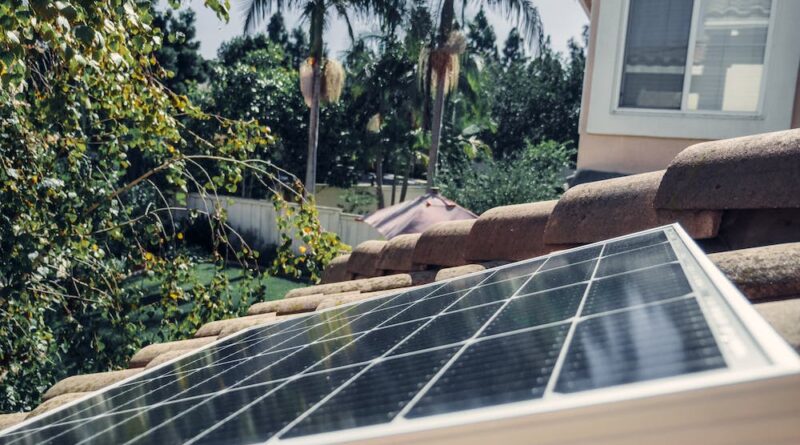Pros and Cons of Solar Panel Installations
Nowadays, there are a lot of households that have been starting to utilize solar energy to power their homes through solar panel installations. Not just because of how it is a huge help for the environment as a whole, but because of the personal benefits that you can reap from them — the decrease in the cost of your electricity bills; the increase in the overall value of your home; and the like. Solar panels are actually more effective, economical, and environmentally beneficial than ever. Going solar, however, may not be a wise investment for every homeowner, depending on factors including geography, roof orientation, and existing electricity demand.
The sun is undoubtedly a powerful energy source. And even though we can only capture a small fraction of it, harnessing this power by putting up solar panels can have a big impact on the globe. Solar energy has long been criticized for being too expensive or ineffective as well. But then, it has shown to be quite advantageous, both for the economy and the environment.
As previously stated, solar energy is a cutting-edge option for all types of property owners. But it is important to take both the advantages and disadvantages of going solar into account, especially if you are thinking about installing a solar panel system. And when thinking about solar panel installations for your home, it is crucial to analyze the benefits and drawbacks of solar energy from the viewpoint of a homeowner. Read on.
Pros
Reduces Electric Bills
One of the main advantages of solar panels is that they can significantly reduce your electric bill. In many places, utilities are required to offer net metering, which enables homeowners to reduce their electric bills by using the energy generated by their solar panels. The utility can then purchase the surplus energy they have. Their power bills will typically include this as a credit that may be applied to future electricity payments.
This benefit is actually simple to understand. By installing solar power for your home, you create your own electricity, rely less on your electric company, and pay less in electricity bills each month. Since solar energy systems typically last 25 to 35 years, choosing solar will allow you to save money on your electricity bills for many years to come. In addition, while the price of solar has dropped by more than 70% over the last ten years, the price of power has increased by roughly 5%, and this upward trend in electricity prices is anticipated to continue. In the face of these escalating prices, going solar can help you regain control.
Furthermore, even though solar panel systems are becoming more affordable, installing solar panels still requires a sizable investment. The system will, however, pay for itself and save you money on your electricity bill for literally decades because solar energy is basically free! This cost-saving comes in the form of a much reduced or nonexistent electricity bill. Your solar panel system will have totally paid for itself by giving your home free electricity eight years after it was installed. After that, you can start making money just by having solar panels and doing nothing else. Additionally, these solar cells typically have a lifespan of 25 to 30 years.
Reduces Carbon Footprint
Whether you realize it or not, generating electricity emits a significant amount of carbon dioxide. However, companies can carve out a sizable portion of the greenhouse gas emissions and swap it out for clean energy thanks to solar energy systems. The two most eco-friendly energy sources available today are produced by photovoltaic technologies, such as solar panels and concentrating solar power (CSP) facilities. As a result, when you use solar energy to power your home, you lessen the overall environmental impact and carbon footprint of your entire household.
Additionally, solar energy is a clean, sustainable source of power that helps lessen greenhouse gas emissions and our influence on the environment by reducing carbon dioxide and other pollution. Solar energy, in contrast to conventional fossil fuels like coal and oil, does not directly result in the discharge of pollutants, such as carbon dioxide, into the environment and water supply. In fact, solar energy is the most environmentally-friendly option, even when compared to nuclear power.
Works in Many Climates
Many individuals think that colder climates will not support solar power. That is actually not true. Due to the fact that high heat can lower the voltage that solar panels generate, they are actually more effective in colder climates. A solar system will produce more electricity if it receives more hours of direct sunlight, but current panels are highly efficient and can still produce energy in dimly lit environments. Overall, solar energy is effective anywhere there is daylight.
Additionally, solar panels function worldwide and in any climate. This system continues to produce electricity even in inclement weather, such as rain, snow, light hail, sleet, or hurricanes. In fact, snow increases the effectiveness of solar panels. Light to moderate snowfall has been shown to slide the dirt, dust, and debris off of the panels as it melts. However, heavy snowfall has the potential to cause weight issues for solar panels. In addition, solar panels are more effective in colder climates, which allows them to produce more electricity more effectively than solar arrays in warm climates.
Cons
High Upfront Costs
Solar panel installations can be high. Actually, purchasing solar panels for your home is comparable to purchasing a car. They both require huge investments. However, your investment will yield excellent returns for many years if you do your homework, test drive a few, and make a wise and informed decision. Having said that, the high upfront costs of solar panel installations are deemed to be one of its drawbacks. The actual cost of a system varies by state, and by the incentives you are qualified for. And fortunately, there are ways to finance solar energy. Many times, you can be approved for a zero-down solar loan, allowing you to buy a solar system and still save money on your electricity bill.
Solar Does Not Work at Night
Even while solar energy can still be captured on cloudy and rainy days, the efficiency of the solar system drops. Sunlight is definitely necessary for solar panels to efficiently collect solar energy. As a result, a few days of cloudy, rainy weather can significantly affect the energy grid. Additionally, keep in mind that solar energy cannot be captured at night. On the other hand, thermodynamic panels are an option to take into consideration if you also need your water heating solution to operate at night or during the winter.
There are actually some instances where solar enthusiasts ponder whether adopting solar will enable them to live entirely off the grid. In the majority of solar technology uses, this is not practical. Home batteries have just lately become widely available for the majority of households, despite the fact that several solar companies provide storage options for homes. The majority of solar energy is used immediately, and any extra is sent back to the traditional utility system or a battery. For power at night and in other instances when sunlight is scarce, solar homes must rely on utility systems or battery storage.
Difficult to Move Once Installed
Technically speaking, you could move your solar panels to your new house. But in reality, this seldom ever occurs because solar panels are made specifically to fit your roof. Thus, shifting them to a different spot is unnecessary. Actually, this is one of the drawbacks of adding solar panels to your house. If you do decide to move, moving them can be pricey. The net metering contract you have with your utility is attached to the home. Additionally, it can be expensive to hire someone to take down and reinstall your solar panels.
However, solar panels do increase the value of your home, so even if you decide to relocate, the value of your solar panels will probably be reflected in a higher sale price.
Key Takeaway
The pros of solar panel installations certainly outweigh the cons greatly. Solar installations are now more affordable than ever; the solar tax credit has been extended through 2035, and the cost of power will only go up. You may start saving money as soon as you convert to solar power.
However, each situation varies depending on the area, the residence, regional solar incentives, the accessibility of qualified solar installers, and the energy use of the home. Overall though, homeowners that install residential solar systems save a lot of money on their energy bills. Clean, renewable energy also has environmental advantages that cut carbon emissions and our total contribution to climate change. Anything that helps homes save money while also preserving the planet for future generations is worth looking into and investing in.



